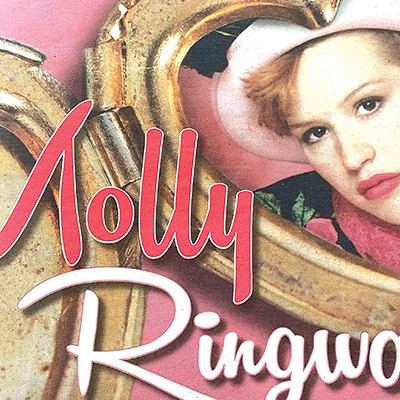Toward the end of The Breakfast Club, Dick Vernon, the no-nonsense assistant principal, is in one of the high school's back rooms powwowing with the very Zen janitor, Carl. It is one of the few scenes in the Breakfast Club that doesn't include the collection of iconic misfits who have been "sentenced" to a legendary Saturday in detention, yet it is a pivotal scene. Dick has spent the day doing battle with the high schoolers; in particular, with John Bender (played by Judd Nelson), whose unbridled chaos most threatens the principal's sense of authoritarian order.
"Each year, they get more and more arrogant," says Dick. He is a paunchy mid-40s; oddly the same age that the actors in the movie are now. "You think about this," Dick continues. "When I get old, these kids will be running the country. This is the thought that wakes me up in the middle of the night."
Even though it is not one of the commonly quoted scenes from the 1985 breakout hit—not a scene when Ringwald applies lipstick while holding the make-up in her breasts, or any of Judd Nelson's live-wire adlibs—this is what articulates the generational tension at the film's core, and also the scene that begs the question, What will become of these kids—will they put their powers toward good or evil?
But, a quarter-century later, these kids—the lost boys and girls of the '80s—have grown up, and they are running the country. And know what, Dick? These kids that you spit on are all grown up—and they are all right.
They are CEOs of companies that put community in front of bottom lines. They recycle. They fret about and prioritize good parenting. They garden, and have ushered in a deeply sincere lifestyle of seventh-generation sustainability. They elected the nation's first black president, and, perhaps most spot-on to the Breakfast Club's themes, have shifted a national attitude away from bullying and toward magnanimous acceptance of any creed, ethnicity or sexual orientation.
Rest easy, Dick.
Increasingly, the '80s have become a cultural punchline—characterized as a time of big hair and brightly colored sweaters that would make a peacock blush. Movies like Top Gun and Wall Street are now mocked for their overblown emotions that play out in operatic proportions, and Reagan is seen as a dottering grandpa.
But a closer examination of that decade tells a very different story. Culturally speaking, with movies like The Outsiders at the beginning of the decade, and John Hughes films throughout—the decade was about a new generation grappling with its identity and a desire to close gaps between the "Socs" and "Greasers." The '80s planted the seeds of current social change, whether it was the first recycling efforts, ubiquitous "Save The Whale" bumper stickers, or wide-spread boycotts against anyone investing in apartheid South Africa. It was also the early days of Act Up, when LGBTQ activists firmly began to lobby for legal rights.
It makes sense: This is the first generation reared on the modestly revolutionary "Sesame Street," a TV show that debuted in 1969 and staged an urban middle-class neighborhood ethically diverse and balanced. (With these kids all grown up—and now homeowners and small-business owners—is it any surprise that Brooklyn, Portland and even parts of Bend reflect many of those community values from "Sesame Street"?)
By the time this generation reached its teenage years, in the '80s, TV shows like "The Cosby Show" took these themes even further, mainstreaming the notion that black Americans could shake racial constraints and live just like, well, me and you. In a wonderful Salon article in 2009, the conservative political mastermind Karl Rove explains the "Cosby Effect," and how that TV show made possible the first African-American president by creating a cultural space in the collective mind-set for the show's 25 million viewers that accepts a smart and wise black American family as its moral leader.
Embodying this subtle, but very real, revolution was Molly Ringwald, who was first introduced to her peers when she, like the other kids of the '80s, awkwardly turned 16, and simply wanted to be recognized for who she was, for all of her quirks and compassion. In a touching scene in Sixteen Candles, she applies that empathy to an even more awkward freshman, played by Anthony Michael Hall, who desperately wants to stop being a little boy and start acting like a man. When Ringwald's character rebuffs his sexual advances, she does so in a big-sisterly way, telling him, "A lot can happen over a year. You could come back next fall as a completely normal person." It is a touching gesture, and one that recently has been echoed by Dan Savage's widespread "It Gets Better" campaign, again recycling the message that it is not necessary to compromise one's personality in the face of harsh, unkind social expectations.
There is perhaps no better person to trace the subsequent narrative arc from heart-on-the-sleeve teenager to responsible, progressive, grown-up citizen than Molly Ringwald—or, at least an odd montage of the characters she portrayed and the real-life grown-up she has become; as much as Molly Ringwald reflected the most earnest and generous personality traits for millions of teenagers in the '80s, her lessons about growing up and holding onto this generosity should be equally instructive in the 21st century.
Last year, Ringwald traveled with "The Moth," the popular NPR storytelling show. In May, I saw her talk in Milwaukee. I was in the upper balcony, but even from those seats her signature red hair was clearly visible. She unspooled her yarn in the same way that a proud mom would tell you about her precocious daughter while standing in line at Starbucks. But the story took a turn around a dark corner when the grade school principal called Molly into the office to explain that her daughter was becoming a schoolyard bully. It was only then that Ringwald referenced her fame.
"I can't tell you what this meant to me," she explained, "because I basically made a career being the girl who stood up to bullies."
From Revenge of the Nerds to Back to the Future, in fact, the theme of overcoming bullying threads through many of the popular films of the '80s. In The Breakfast Club, Emilio Estevez's character is in detention for locker room harassment—he taped some scrawny freshman's butt checks together. In 1985, bullying reflected the standard high school social hierarchy, a social structure passed down generation to American generation. But, like few previous films, Hughes' films helped challenge that notion, and Ringwald's characters served as the primary hero in those tales.
In a final scene of The Breakfast Club, the five teenage characters are riffing in a circle in the balcony of the library. The brain, the jock, the criminal, the princess and the "basket case" have overcome their initial suspicions and prejudices, and bonded at an essential common ground, an understanding that each is simply looking for acceptance.
Reportedly, the conversation that bounces between the characters was largely improvised.
"My God, are we going to be like our parents?" worries Estevez's character.
"Not me," Ringwald's character Claire asserts. She pauses a beat before weakly adding, "ever."
"It's unavoidable," continues Allie, a lonely, lost girl played pitch-perfect by Ally Sheedy. "It just happens," she adds.
Off-screen, Claire/Ringwald whimpers, "What happens?"
And, without missing a beat, Allie responds: "When you grow older, your heart dies."
This sentence sets up the cliffhanger for the movie—whether the budding Generation X would grow up and fall into the familiar traps of self-obsession, money obsession and general tedium, or if they would apply their teenage earnestness about tolerance, respect and kindness toward their grown-up set of issues, problems and challenges. It is a critical question for any generation—and for the Brat Pack and, more broadly, Generation X, one that couldn't be answered until now.
But, as Molly Ringwald has re-emerged into public life with her jazz record and New York Times best-selling book, once again she answers a question for an entire generation: She has grown up, and her heart clearly has not died; in fact, like many of the Generation X kids of the '80s, it has blossomed, with sincere concerns about being an attentive parent, and with an openness that underscores a new social consciousness about everything from sustainability to tolerance—after all, isn't that the lesson we were suppose to learn from the Breakfast Club?























